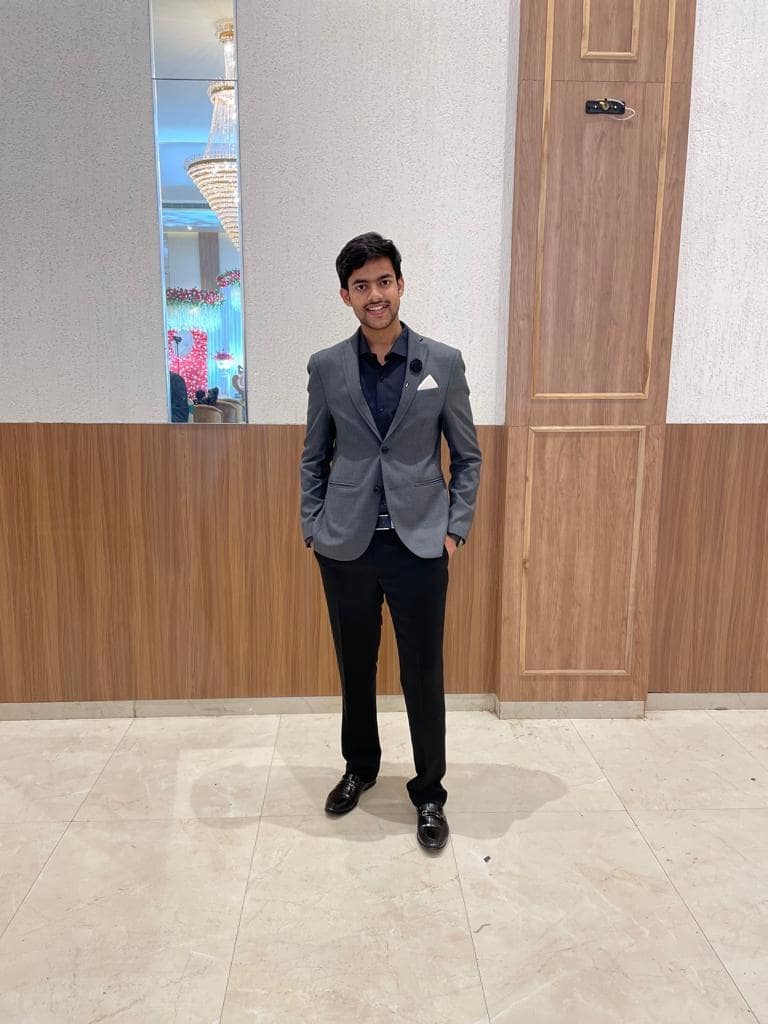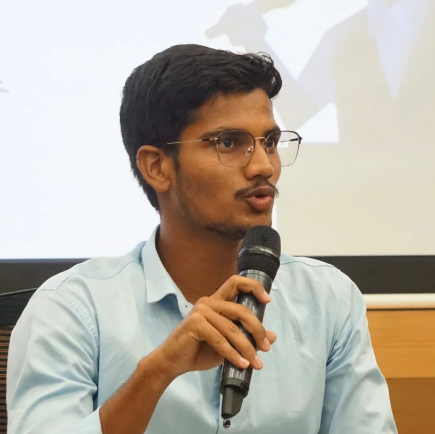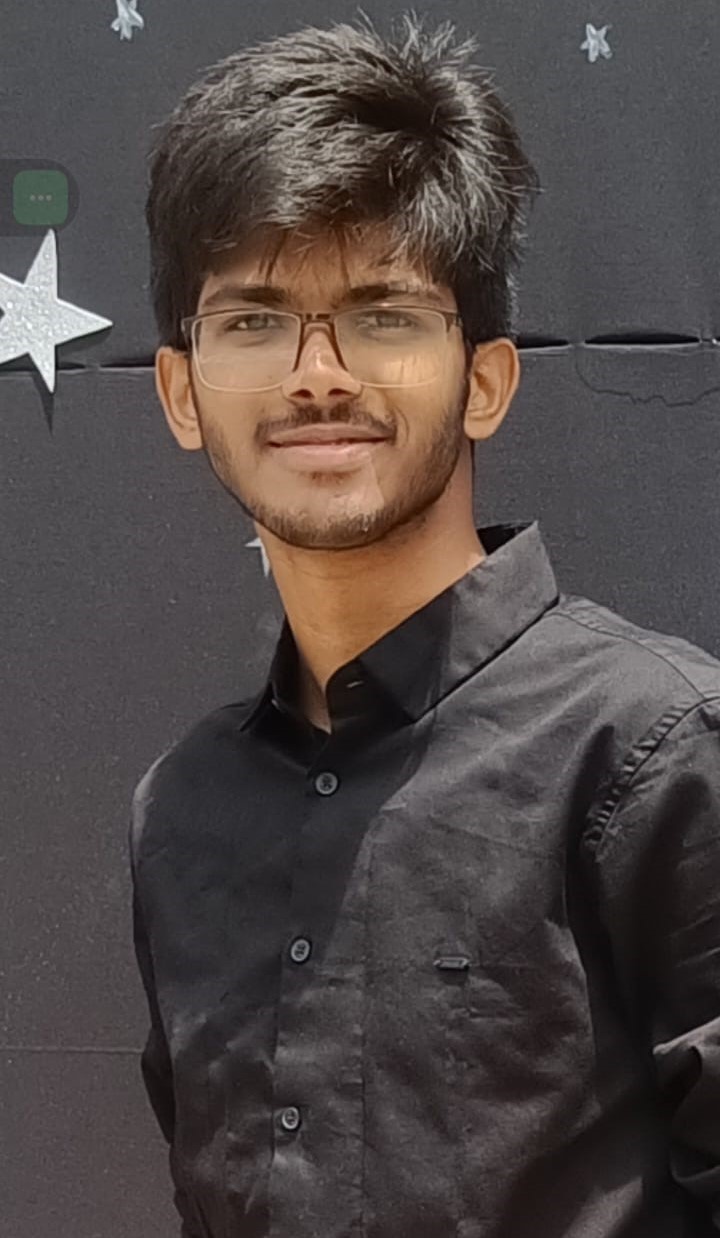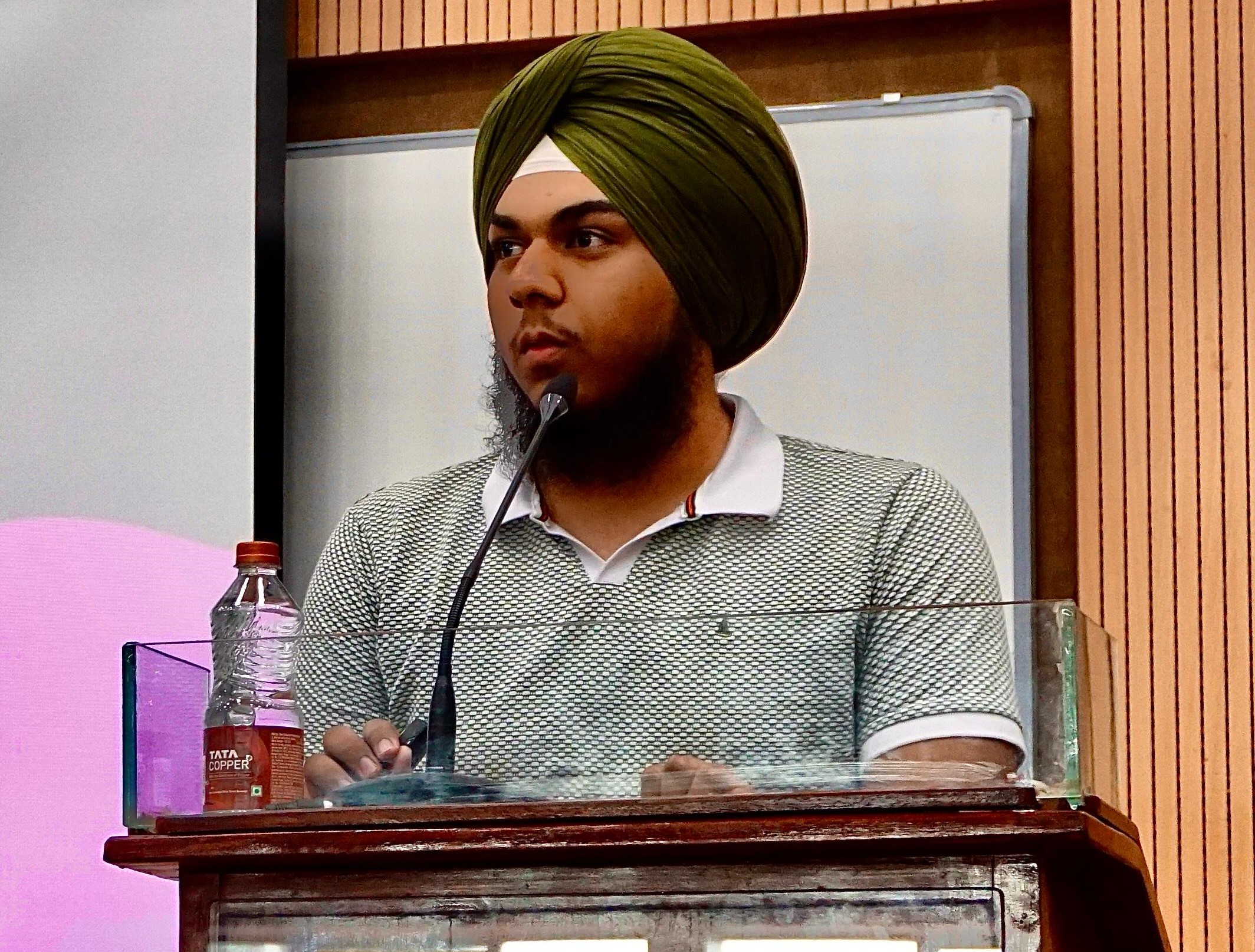
Under the series "Secretary Spotlight", this post covers the accomplishments, challenges faced, steps taken and the overall efforts made by the General Secretary of Academic Affairs. This interview raises crucial questions on college placements, student representation, industry collaborations, and policy changes regarding off-campus internships.
1. Let’s start with your manifesto, what efforts were taken to revitalize our college placement efforts?
Efforts to revitalize our college placement initiatives focused on highlighting the importance of minor courses and advocating for interdisciplinary studies. I worked with the CDC to ensure that students opting for such courses have an equal chance at placements. Although the CDC functions as an independent body, I did express concerns through emails regarding certain practices and the level of student involvement in the council’s meetings. However, I have continued to provide support by sharing company contact details and offering assistance where needed.
A proposal is also in place to introduce a role on par with the CDC FIC to oversee the body’s operations, ensuring that student involvement is properly recognized and not overlooked.
2. What have you done to bring about representation of newly incorporated branches in the senate?
Since the Senate is the highest decision-making body, it is essential that its members have prior experience in positions of responsibility. To ensure representation for newly incorporated branches, two 3rd-year students, Anjali Kategri (225100018) from the BSMS branch, and Luv Shanker were added to the UGAPEC Committee, with Anjali also serving as a female representative.
Additionally, to keep the BSMS branch involved in Senate decision-making, Priyanshu (IS23BM007) was incorporated directly into the Senate under my purview. The plan is for Aditi and Luv to take over as Senate members next year, while Priyanshu transitions to UGAPEC.
3. As mentioned in your manifesto, what efforts have been made to provide software licences for academic purposes?
So far, no new requests for additional software licences have been made by any department. However, we worked on resolving a few issues with previously acquired licences to ensure smooth access for students. While there were no specific academic licence requests, some clubs did propose software requirements. These were reviewed and incorporated into the respective council’s budget to support their activities. We remain open to facilitating any future requests to enhance academic resources.
4. You have also mentioned that efforts will be made to enhance college image, can you give us some update on what efforts were taken?
To strengthen our college’s presence and reputation, we actively engage in key discussions alongside other IITs. We participated in the PAN IIT Governance Summit and I will also be representing IIT-Dh at the upcoming Student Leadership Conclave this month. In the past, our institute lacked representation in these crucial panels, which limited our access to valuable insights and collaborations. By ensuring our participation, the aim is to bring IIT-Dh into the larger conversation and contribute to its growth and visibility.
5. Did you establish any new ties with industry partners?
Yes, we have established new industry partnerships and strengthened existing ones. Incubation centers have been set up in the college for companies such as Dvara Solutions, providing a platform for innovation and collaboration. Additionally, the BioNEST startup incubation center was recently established to support research and startups in biotechnology, biomedical devices, drug discovery, and agri-tech. We also have the dhaRti Foundation, a not-for-profit research and technology business incubator promoted by IIT Dharwad, which plays a key role in fostering entrepreneurship and industry collaboration. These initiatives aim to enhance industry-academia ties and provide valuable opportunities for students and researchers.
6. What steps did you take to push for rule amendments allowing off-campus internships upon completion of required credits? Were you able to succeed in achieving this change?
The proposal for allowing off-campus internships upon completion of required credits was drafted and presented in the last senate meeting. However, it faced significant opposition and was deferred to the next meeting for further discussion. Rest assured, I am actively pushing for this change and will bring it up again in the upcoming meeting.
7. What role does student feedback play in shaping policies?
Student feedback is essential in improving academic policies and ensuring a smoother system for everyone. The issues raised help identify gaps, allowing us to address them proactively so they don’t repeat in the future. For example, challenges faced during semester registration last time were noted and handled more efficiently this time. By resolving concerns, whether through emails, WhatsApp, or direct interactions, I ensure that student inputs directly contribute to making the academic system better and more efficient.
8. What aspect of your role do you find the most difficult?
One of the most challenging aspects of my role is balancing the diverse academic concerns of students while ensuring alignment with the institutional policies. Addressing individual issues while working within administrative constraints can be complex. Additionally, certain systemic challenges, such as registration bottlenecks or scheduling conflicts, require continuous coordination with multiple stakeholders. However, despite these challenges, I have always prioritized accessibility and worked to resolve concerns efficiently, ensuring a smoother academic experience for everyone.
The views presented above are the blogger’s own and are not in any manner representative of the views of Drishti or IIT Dharwad in general.
The views presented above are the blogger’s own and are not in any manner representative of the views of Drishti or IIT Dharwad in general.




 Never miss a story from us, follow us on our handles!
Never miss a story from us, follow us on our handles!
Comments